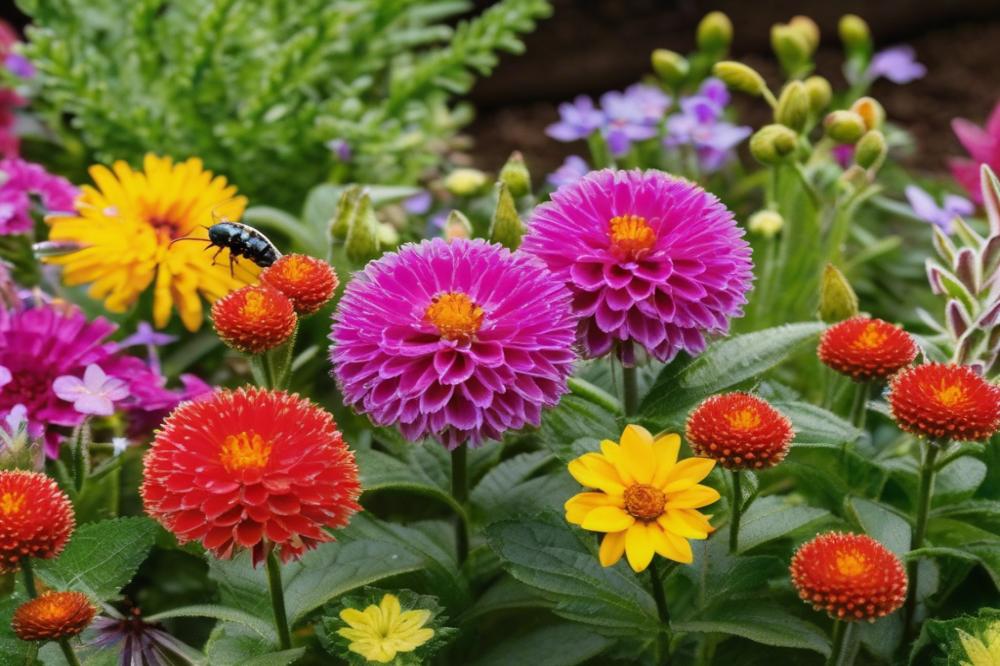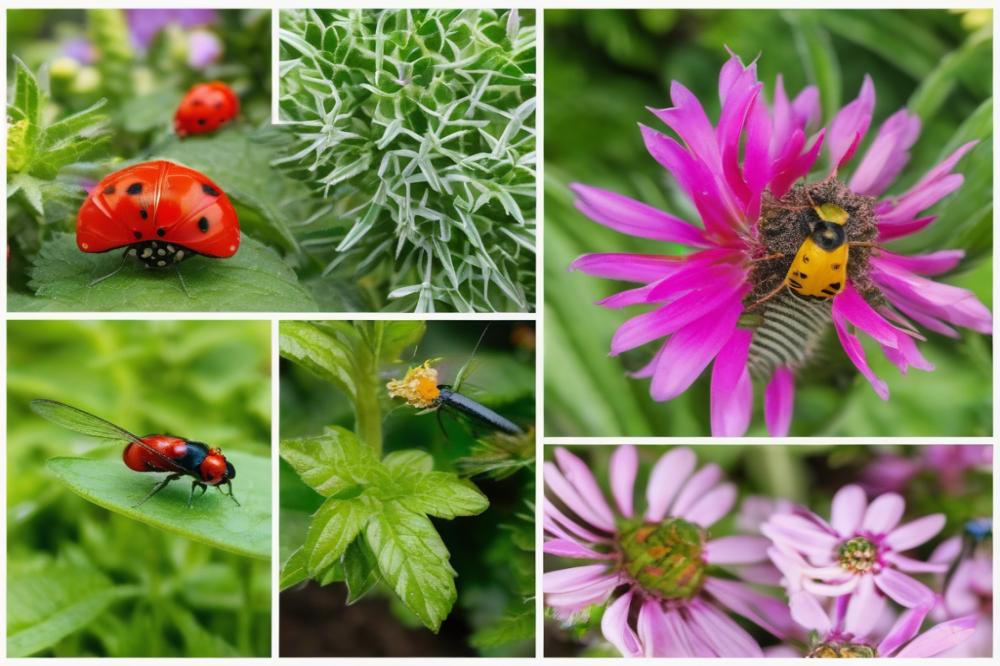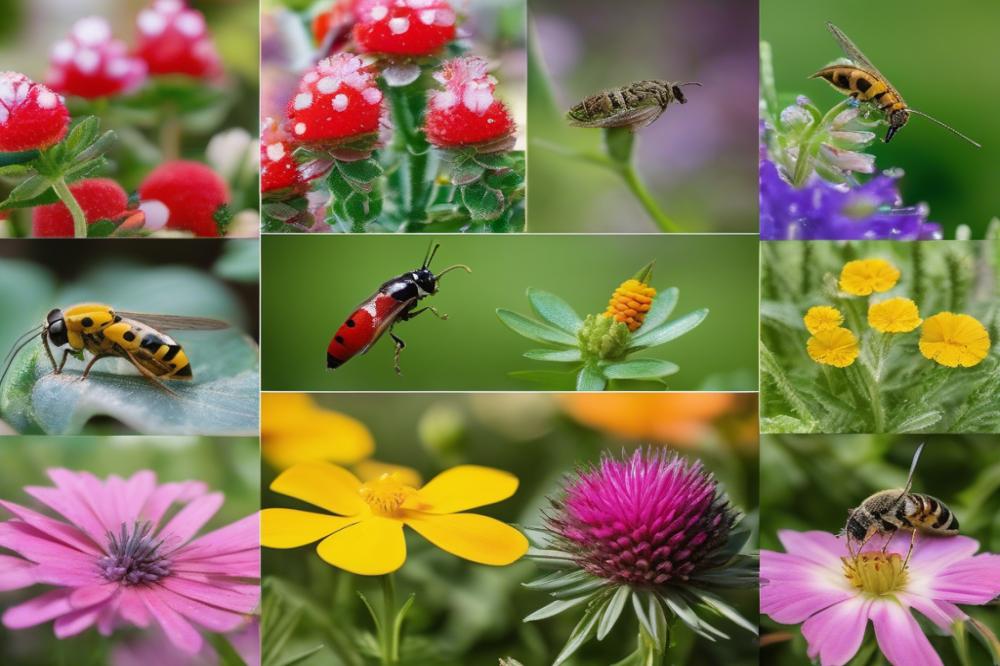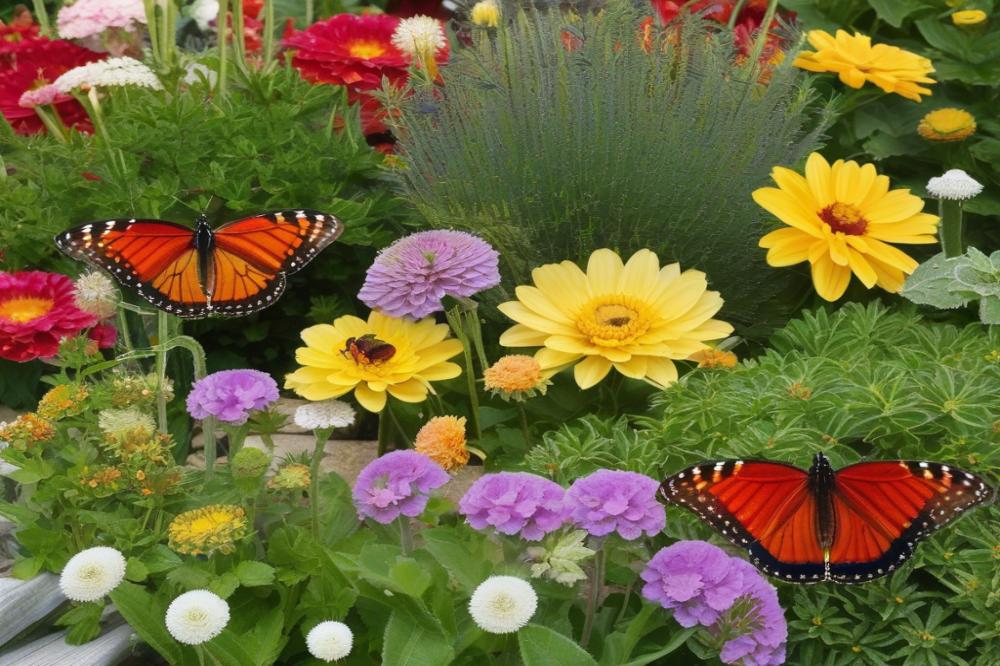Protecting Your Garden from Black Vine Weevils
Every gardener knows that pests can wreak havoc on plants. Among these troublesome invaders is a significant menace: the Black Vine Weevil. This small, black beetle has the potential to devastate your outdoor garden by damaging roots and foliage. If left unchecked, infestations can quickly lead to plant decline and untimely death. Understanding how to manage these pests is crucial for the health of your garden.
pest management involves a variety of strategies to protect plant health. Techniques such as organic pest control hold great promise for those wanting to maintain a chemical-free gardening environment. Adding beneficial insects to your garden can help keep harmful pests at bay. Additionally, employing strategies for infestation prevention strengthens your plants’ resilience against these attackers.
Healthy soil is essential for a thriving garden. Soil health impacts everything from water retention to nutrient availability. By keeping the soil enriched, you create a strong foundation that supports plant growth. Furthermore, integrating nematodes into your soil can naturally help combat pests like the Black Vine Weevil. These tiny roundworms prey on larvae and aid in controlling their populations.
If you want your garden to flourish, attention to pest management is non-negotiable. Staying informed with gardening tips and techniques enables you to safeguard your plants effectively. Balancing plant protection with ecological methods will benefit your garden’s overall health. Your commitment to a proactive approach can make all the difference in sustaining a vibrant and productive outdoor space.
Understanding Black Vine Weevils


Black vine weevils are small, dark insects that pose a serious threat to various plants, especially in outdoor gardens. Adults are about 1/2 inch long and have a distinctive snout. Their bodies are usually covered in small patches of white, making them quite recognizable. Very few garden pests can be as damaging as these critters.
The life cycle of the black vine weevil includes several stages. Adult weevils emerge in spring, usually around April or May. After mating, females lay around 200 eggs directly in the soil. Once these eggs hatch, the larvae begin their destructive behavior. They feed primarily on the roots of plants, which can lead to severe damage or even death.
Feeding habits are crucial to understanding how to protect your garden. Adult weevils chew on leaves, creating notches along the edges. This isn’t just a cosmetic issue; it signifies that a feeding frenzy is occurring. As the larvae expand their diet to include root systems, the real problems begin. Perennial plants are particularly susceptible to root damage, leading to poor growth.
Damage from these pests can sometimes go unnoticed until it is too late. Signs of infestation often include wilting, yellowing leaves, or stunted growth. Infected plants may struggle to draw nutrients due to insufficient root structures. Check for small, irregular holes on foliage or soft, decaying roots when assessing plant health.
Preventing infestation is key to maintaining a lively garden. Utilizing organic pest control methods can make a significant difference. Introducing beneficial insects, such as nematodes, can help manage weevil populations. These tiny creatures target and destroy the larvae before they wreak havoc underground.
Paying attention to soil health is another effective tactic. Healthy soil encourages strong plants that can resist pest damage. Regularly rotating crops can also limit the buildup of harmful insects. Following these gardening tips will create a better environment, making it harder for pests to thrive.
Protecting your plants requires vigilance. Keeping an eye out for signs of infestation will allow for swift action. The earlier you spot these pests, the easier it will be to manage the situation. By actively working to keep black vine weevils at bay, you can enhance your garden’s overall health.
Gardening Tips for Prevention


Preventing infestations in your garden starts with strong pest management strategies. Regular maintenance of your outdoor gardens is vital. Healthy soil encourages robust plants, which can resist pests better. Make a habit of checking your soil health. Test for nutrient levels and pH balance to promote plant vigor.
Plant protection is easier when you keep an eye on your garden. Inspect plants regularly for any early signs of trouble. Look for wilting leaves or irregularities in plant growth. These can indicate that something is amiss. Catching issues early allows for more effective intervention. Use your senses—especially sight—to notice any changes.
Employ organic pest control methods to maintain a safe environment. Welcome beneficial insects such as ladybugs and lacewings into your garden. These friendly insects eat harmful pests and can largely reduce the need for chemicals. Planting a variety of flowers can attract them. Creating a diverse ecosystem fosters healthier plants.
Another innovative strategy includes using nematodes. These microscopic creatures are natural predators to many pests. Applying nematodes to your soil can significantly reduce the risk of specific infestations. This method enhances your soil health while controlling pests. It’s an excellent option for eco-conscious gardeners.
Vigilance is key to infestation prevention. Regularly remove debris and dead plants from your garden area. These can harbor pests or diseases. Keeping the garden clean reduces hiding spots for unwanted visitors. Create a routine to ensure you’re consistently caring for your plants and soil.
Utilizing mulch around plants offers both protection and moisture retention. Choose organic mulch to encourage beneficial microbes in the soil. This practice promotes overall garden health. It also deters many pests, creating a less inviting environment for them.
Incorporate crop rotation into your gardening practices. Changing the location of plants each season can disrupt the life cycle of pests. This strategy makes it harder for them to establish themselves in your garden. Additionally, rotate with a mix of crops to diversify your garden ecosystem.
Organic Pest Control Methods


When it comes to guarding your garden against unwanted pests, organic methods can be highly effective. Several strategies exist to combat the troublesome black vine weevil. Utilizing eco-friendly techniques not only protects your plants but also promotes overall garden health.
One of the most effective strategies is the introduction of beneficial insects. These natural predators can significantly reduce pest populations. Ladybugs and lacewings are two examples of helpful insects. They actively hunt down aphids and other pests that threaten your plants. By attracting these allies to your outdoor gardens, you enhance plant protection without harsh chemicals.
Another vital method involves using nematodes. These microscopic worms inhabit the soil and target larvae of harmful insects. When applied correctly, nematodes enter the bodies of pests, effectively controlling their numbers. This approach works well for long-lasting pest management and enhances soil health simultaneously. Infestation prevention becomes easier when nematodes are part of your gardening tips.
Implementing these organic pest control methods fosters a healthy ecosystem in your garden. Both beneficial insects and nematodes form a balanced environment, maintaining the vitality of your plants. By being proactive and using these strategies, you not only fight against pests but also cultivate a thriving and resilient garden.
Plant Protection Strategies


Certain plants are more susceptible to damage from pests like the black vine weevil. Common victims include rhododendrons, azaleas, and strawberries. Knowing which plants need extra care is vital for effective pest management. Prevention is better than a cure, and taking action now can save your garden later.
Physical barriers serve as a strong line of defense. Using row covers or fine mesh netting can keep out adult beetles. These covers also protect delicate seedlings from other pests. Installing them early in the season allows these plants to flourish without the threat of infestation.
Companion planting has its benefits too. Placing marigolds near vulnerable plants can deter pests naturally. Many beneficial insects are also attracted to marigolds, which can help reduce pest populations. Consider growing plants like basil or garlic alongside susceptible crops, as they repel many common garden pests.
Organic pest control methods can help maintain garden health. Using nematodes is one of the most effective methods. These microscopic worms attack pests in the soil, targeting the larvae of weevils. When applied properly, they offer a safe way to manage pest populations without harmful chemicals.
Pay attention to soil health as well. Healthy soil encourages strong plant growth, making them more resilient against damage. Regularly adding organic matter can boost the health of your garden bed. This creates an environment that is less favorable for pests.
Try a combination of strategies. Various protective measures work best together. Always monitor your plants for signs of trouble. Early detection and action lead to better outcomes and higher chances of success.
Infestation Response and Management
When an infestation occurs, quick action is essential. Assess your garden regularly to spot early signs of trouble. Damage includes shredded leaves, especially in nighttime feeders. If you observe these issues, it’s time to act.
Start by removing any visible larvae or adult pests. Handpicking can be effective, especially in smaller gardens. This may not eliminate the problem but can reduce their numbers significantly. Turning the soil can also disrupt their lifecycle and expose hidden pests. Healthy soil plays a key role in maintaining balance.
Consider organic pest control options, as they are often safer for your plants and the environment. Nematodes, which are microscopic worms, are useful in targeting and destroying larvae effectively. Apply them according to package instructions, and keep your soil moist for the best results. Beneficial insects, like predatory beetles, can also help keep pest populations in check.
Utilize traps as an effective management technique. Sticky traps can catch adults, while bait traps can lure them away from your beloved plants. These methods not only thin out the pests but also provide a visual cue for ongoing monitoring.
Gardening tips for infestation prevention are also useful. Maintaining healthy plants is vital for resilient outdoor gardens. Regularly inspect your plants for stress signs. Healthy foliage can tolerate pests better than weak, stressed plants. Implementing plant protection strategies, like crop rotation and diversity, enhances your garden’s resilience.
Lastly, always practice good garden hygiene. Clean up fallen leaves and debris, as these can harbor pests. Proper irrigation and fertilization further support soil health, making your plants robust against infestations. With a few proactive steps, it’s possible to manage weevil threats while ensuring vibrant garden health.
Final Thoughts on Protecting Your Garden
Protecting your garden from harmful pests is essential for a healthy landscape. Black vine weevils can cause significant damage, particularly to ornamental plants and fruits. Understanding this threat is the first step toward preserving your plants’ beauty and vitality.
Adopting integrated pest management practices is a smart strategy. This holistic approach combines different methods to keep pests at bay while minimizing harm to beneficial insects. By blending biological controls, cultural practices, and targeted treatments, you can create an environment where your plants thrive and pests struggle.
It’s important to stay informed. Regularly check your plants for signs of damage and remove any affected ones promptly. Utilizing effective gardening tips can also keep your garden flourishing. Strong, healthy plants are generally less attractive to pests, making prevention easier.
Remember to be patient. It may take time to see the benefits of your efforts. Keeping a watchful eye on your garden and being proactive will lead to lasting success. By committing to thorough pest management and nurturing your green space, you will reap the rewards of a vibrant and flourishing garden for years to come.



